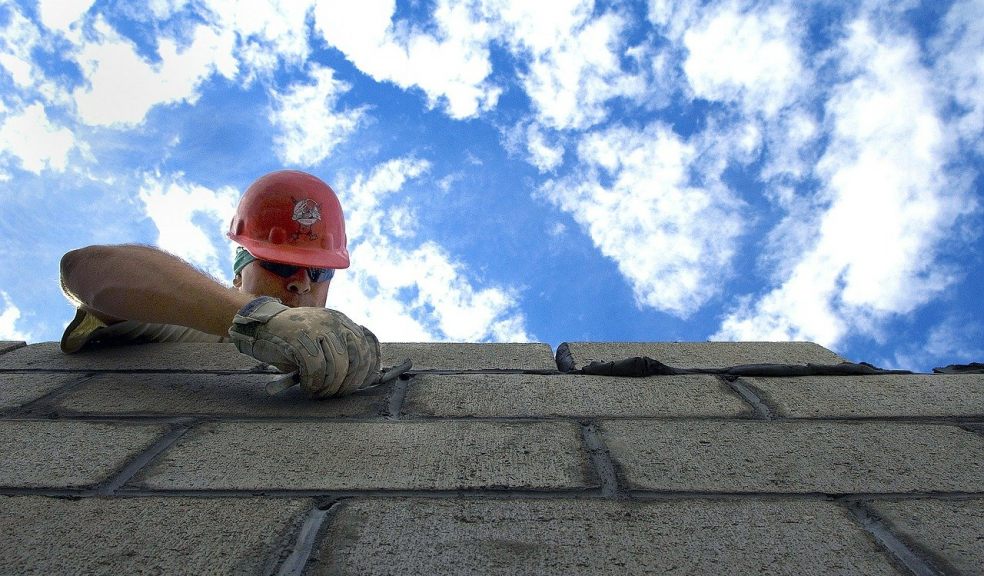
A guide to a career in bricklaying
What is a bricklayer?
A bricklayer, also known as a mason or brickie, is a skilled worker in the construction industry. Their area of expertise is the building, repairing and refurbishment of brickwork and stonework. A bricklayer will be involved in the construction and restoration of a wide variety of projects such as housing, chimneys, walls, and decorative stonework.
Bricklaying is a popular job, with over 70,000 bricklayers employed in the UK. There will always be a high demand for those in this role. There are therefore many career prospects for bricklayers, in many different areas, from building houses to restoring a historical landmark.
What does a bricklayer do?
- Laying of bricks and mortar with a trowel
- Mixing mortar mechanically or by hand
- Working to plans and drawings
- Checking alignment with a sprit level, plumb line, or laser level
- Cutting, shaping, and trimming bricks using various tools
- Build, repair and refurbish brickwork and stonework
- Working alongside other construction workers
How much does a bricklayer earn?
On average in the UK, a bricklayer can expect to earn between £17,000 to £42,000 per year dependent on experience and the type of project worked on. This salary tends to be higher than other physical labourers in a similar industry. For example, a construction labourer will earn up to £30,000 and a carpenter up to £38,000 on average.
What hours does a bricklayer work?
As a bricklayer you can expect to work a typical number of between 42 and 44 hours per week in a full-time role. Work can largely be during daytime hours although some jobs will require night and weekend work. Overtime may all be available during peak periods.
Ways to become a bricklayer
There are three main routes to becoming a bricklayer and the entry requirements for related courses tend to be minimal and are great for those who did not enjoy school. Routes to the role are:
- A bricklaying course – Attend college and gain a Level 1 or 2 diploma in bricklaying. These courses will last between one to two years and are free to those under 19 years of age
- An apprenticeship – An apprenticeship will give you an NVQ Level 2 and you will train on the job and in the classroom. Average course length is two years. Tuition is free between age 16 to 24 and you will earn a small wage while on the job
- A trainee role – If you prefer not to sign up to a course, you could learn the trade on the job. You might begin as a general labourer and be taught how to brick lay by a manager or fellow employee
Career progression of a bricklayer
A career in bricklaying can lead you to many other roles in the construction industry and might be the first step towards becoming a site manager. Some of the best site managers started as bricklayers and construction labourers and then combined their experience with additional education such as an accredited Level 3 Diploma in Site Supervisory in order to progress in their career.
Online institutions such as the College of Contract Management are a great platform to explore if you are considering gaining additional qualifications to boost your prospects for the future. Whatever career path you decide to take rest assured that the internet contains a wealth of free knowledge and advice to help guide you on your journey.
CSCS Card
A CSCS, or Construction Skills Certification Scheme card is a type of qualification that demonstrates that people working in the construction industry have the necessary health and safety training to work on a site. The most basic level is a Green Labourer CSCS Card and having one of these will widen your career prospects as they are desired by many employers.
Skills needed to be a bricklayer
So, you have decided to enter into a career in bricklaying. As well as relevant training or experience, some other important attributes required to perform the job are:
- A keen eye for detail
- Good accuracy and concentration
- Great teamwork skills
- A steady hand, balance, and coordination
- Physical strength
- Open to working in a variety of weather conditions
- Able to work at height
- A responsible attitude and awareness of health and safety guidelines
- Excellent communication
- Building and construction knowledge
- A flexible attitude
- Ability to work from detailed drawings and specifications
If you answer yes to the above skill set, you are sure to excel in a career in bricklaying!













